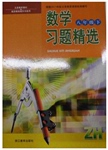题目内容
plants, we will have no animals and meat. So the soil is necessary for us to live.
The top of ground is usually covered with grass or other plants. Plants grow in soil, which has a dark
color. This dark soil is humus. Dead leaves, dead plants and animals' waste make it, but this takes a long time.
When the humus has been made, plants can grow well in it.
All soil needs food. If we don't give it any, the plants will be weak. Animals' waste is the best food for the
soil, but chemical fertilizers (化肥) are also very useful. The same crop (庄稼) should not be grown in the
same place every year. It is better to have a different crop. A change of crop and the use of a good fertilizer
will keep the land in good condition (条件).
When the soil is dry, the wind blows it away. Sometimes heavy rain carries the humus down to a river.
People should grow more and more trees and grass to stop wind from carrying the humus away. It takes
hundreds of years to make humus, and so we must save every bit of it. Without soil, where can we grow
food?
B. plant
C. meat
D. soil
B. 土壤
C. 腐殖土
D. 粘土
B. the more humus in the soil, the better plants grow
C. the chemical fertilizers are expensive
D. A and B
B. The same crop can't be grown in the same place every year
C. Soil's food is chemical fertilizers
D. Humus is hard to make

 习题精选系列答案
习题精选系列答案
| |||||||||||||||||||||||||||||||||||||||||||||
| |||||||||||||||||||||||||||||||||||||||||||||||||||||||||||||||||||||||||